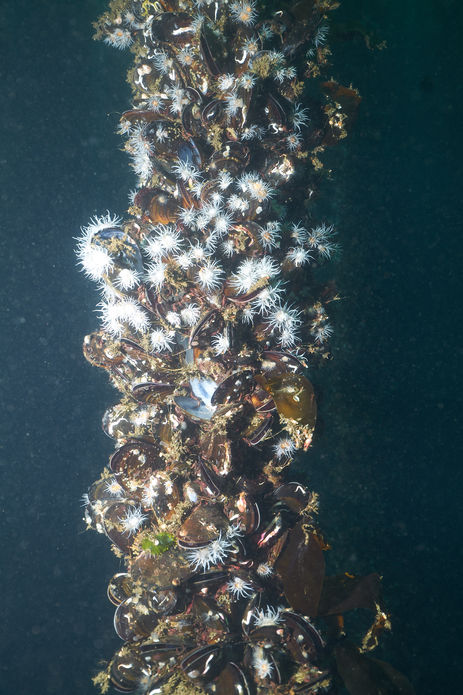MUSSELS
In the world's seas there is a food that could start a revolution.
This natural source of protein is rich in essential nutrients that could meet the food needs of nearly a billion of the planet's most vulnerable populations. It could be a viable alternative to intensively farmed meats such as beef by bringing a number of environmental and sociological benefits.
The animals that are the source of this food do not need feed, antibiotics or agrochemicals to be raised. They also actively sequester carbon. They can even protect fragile ecosystems by cleaning the water in which they live. Welcome to the extraordinary and unglamorous world of bivalves.
These mollusks place themselves at the lowest level of the food chain as filter feeders, sustaining themselves with the microscopic organic matter in the waters of their immediate environment.
With higher protein content than many meats and plant crops and high levels of omega-3 fatty acids and essential micronutrients, such as iron, zinc and magnesium, mollusks have the potential to ameliorate many global food problems. This combination is particularly relevant to childhood malnutrition. Bivalves can be both wild-harvested and farmed in the open sea and coastal areas, having minimal environmental impact compared to animal protein.
Mussels are also extremely important to marine ecosystems because they increase biodiversity by acting as ecosystem engineers.
The potential economic benefit is such that the Food and Agriculture Organization of the United Nations (FAO) and the World Health Organization (WHO) are jointly promoting bivalve farming in the most vulnerable countries through training programs.
Worldwide there are an estimated 1.5 million square kilometers of coastline suitable for bivalve mollusc farming. Development of just 1 percent of this area could produce enough bivalves to meet the protein needs of more than 1 billion people.
Mussel farming has had its development within the European Union and most strongly in the last 30 years, although it had already begun in Galicia more than 50 years ago.
There are currently about 3,300 rafts dedicated to mussel cultivation in Galicia, producing an amount of 270,000 tons per year, accounting for 94 percent of Spanish production and 50 percent of European production.
Each raft can reach a maximum of 500 hanging ropes, taking advantage of the natural characteristic of mussels to attach firmly it is possible to create immense colonies.
The filtration rate is high, a 5 cm mussel can filter 5 liters/hour.
Mussels from a rope are able to filter no less than 90,000 liters of water per day, and those from a raft about 70 million liters at the same time.


















